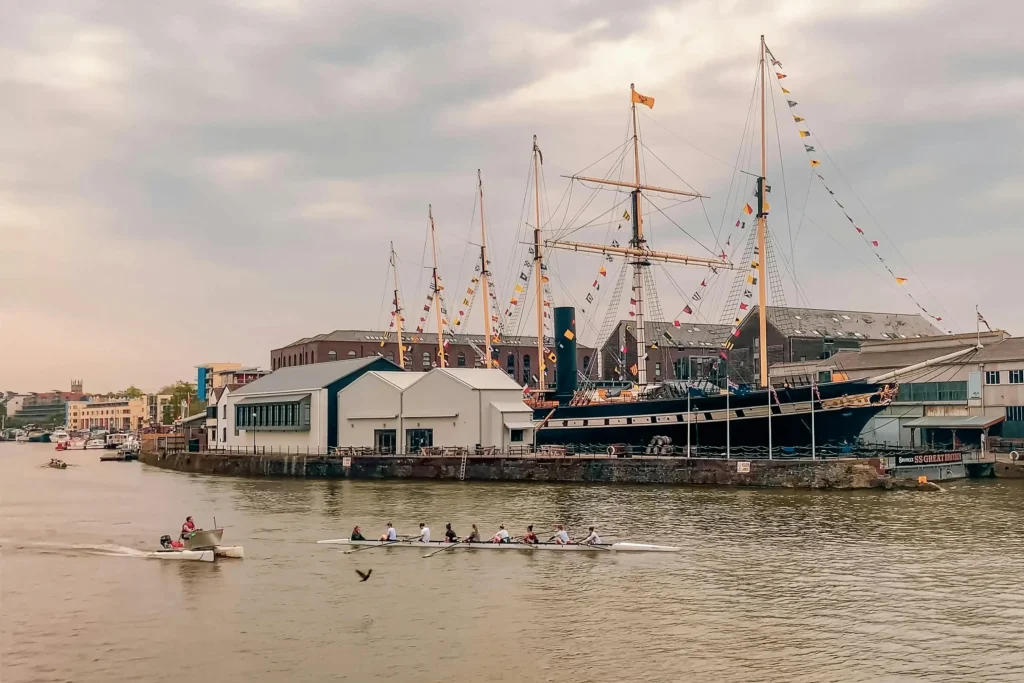In the highly competitive world of hospitality, capturing direct bookings is crucial for your hotel’s success. A strong online presence is key, and this begins with effective search engine optimisation (SEO). The right SEO strategies can significantly boost your visibility on search engines like Google, helping you stand out against online travel agents (OTAs).
Technical SEO and local optimisation are foundational elements that every hotel should master. By conducting thorough keyword research and implementing robust content strategies, you can enhance your search engine rankings and attract more direct bookings. This guide will walk you through the process of selecting a top-tier hotel SEO agency, ensuring your digital strategy is both effective and aligned with your business goals.
Within this guide, we will explore the essential factors to consider when choosing an SEO agency. From understanding the importance of technical SEO to the impact of local optimisation, we will cover it all. By the end of this journey, you will be equipped with the knowledge to improve your hotel’s website performance and secure more direct bookings.
Key Takeaways
- Effective SEO strategies are crucial for increasing your hotel’s online visibility and direct bookings.
- Technical SEO and local optimisation are essential for improving search engine rankings.
- Comprehensive keyword research and content strategies are key to a successful SEO campaign.
- Choosing the right SEO agency can transform your hotel’s online presence.
- Regular monitoring of keyword rankings, organic traffic, and conversions is vital for measuring SEO success.
For more insights on improving your hotel’s SEO, visit our dedicated page on hotel SEO.
Introduction to Hotel SEO in the UK
Discover how hotel SEO can transform your establishment’s online presence. In the competitive UK hospitality market, a well-crafted SEO strategy is essential for attracting direct bookings. By optimising your website, you can outshine OTAs and capture local search queries effectively.
Local SEO is particularly vital for hotels with multiple locations. It ensures your property appears in relevant local searches, such as “hotels near London Eye.” A tailored SEO strategy targeting local customers can significantly enhance your visibility and drive more bookings.
Accurate keyword research is the cornerstone of any successful SEO campaign. By identifying the right keywords, you can refine your hotel’s digital brand and attract the right audience. For instance, targeting long-tail keywords like “luxury hotels in Edinburgh” can yield higher conversion rates.
Well-optimised websites can increase direct bookings and reduce reliance on OTAs. For example, a hotel in Manchester might see a 20% rise in bookings after implementing local SEO strategies. This approach not only boosts visibility but also enhances the overall guest experience.
| Common SEO Challenges | Effective Solutions |
|---|---|
| Low search engine visibility | Implement local SEO and keyword research |
| High reliance on OTAs | Optimise for direct bookings with targeted SEO |
| Poor website performance | Enhance mobile responsiveness and page speed |
By focusing on these strategies, your hotel can achieve a strong online presence and attract more direct bookings. Remember, a well-executed SEO strategy is key to staying ahead in the competitive UK hospitality industry.
Understanding the Importance of SEO for Hotels
Search Engine Optimisation (SEO) is vital for hotels aiming to stand out in the competitive digital landscape. Your website serves as the digital storefront, often making the first impression on potential guests. A well-optimised site ensures your hotel appears prominently in search results, driving more direct bookings.
Strategic use of keywords and high-quality content is crucial. By targeting specific terms like “luxury hotels in Edinburgh,” you attract the right audience. Quality content keeps visitors engaged, increasing the likelihood of bookings. Regular updates about amenities and local attractions can further enhance user experience.
Effective SEO boosts user engagement and conversion rates. Combining local SEO, which targets searches like “hotels near London Eye,” with technical SEO ensures your site is both visible and user-friendly. This dual approach maximises your online presence and attracts more targeted traffic.
Exploring the Pillars of a Successful Hotel SEO Strategy
A successful hotel SEO strategy rests on several key pillars that work together to enhance your online presence. These pillars ensure your website not only ranks higher in search results but also provides a seamless experience for your users.
First and foremost, optimising images is crucial. High-quality images that are properly compressed and include relevant alt tags can significantly improve your website’s performance. Additionally, ensuring rapid website speed is essential, as slow-loading sites can deter users and harm your search rankings.
User experience plays a pivotal role in converting visitors into booked guests. By aligning your search elements with user needs, such as ensuring your website is mobile-friendly and easy to navigate, you can create a more engaging experience. This approach encourages users to explore your site further, increasing the likelihood of bookings.
Striking a balance between technical elements and engaging visual content is key. While technical SEO lays the foundation, compelling visuals and well-crafted content are what truly capture user attention. This balanced approach ensures your hotel stands out in a competitive market.
By focusing on these pillars, you can create a robust SEO strategy that drives more direct bookings and strengthens your hotel’s online presence.
Tips on How to Find the Best Hotel SEO Agency
Choosing the right SEO agency is a crucial step in boosting your hotel’s online presence. A results-driven approach ensures your strategy aligns with your business goals, leading to measurable outcomes.
When evaluating agencies, consider factors like guest reviews and service quality. A proven track record and past performance are key indicators of an agency’s effectiveness. Understanding your unique brand image and business objectives helps the agency tailor their strategy to your needs.
A clear strategy and measurable results are essential for a successful partnership.
| Benefits of a Results-Driven Agency | Key Features |
|---|---|
| Proven Track Record | Case studies and success stories |
| Customised Strategy | Tailored to your business goals |
| Measurable Results | Regular performance reports |
By focusing on these factors, you can make an informed decision and enhance your hotel’s online success.
Local SEO and Technical SEO for Multi-Location Hotels
For hotels with multiple locations, a combination of local SEO and technical SEO is key to driving targeted traffic and boosting direct bookings. By optimising each location’s online presence, you can ensure your hotel appears in local search results, capturing potential guests searching for options near them.
Local SEO focuses on enhancing visibility in specific geographic areas. Creating and optimising Google Business Profiles for each location is essential. This includes accurate NAP (Name, Address, Phone number) details and high-quality images. These profiles help your hotel appear in local search results and Google Maps, making it easier for travellers to find you.
On the technical side, ensuring your website is mobile-responsive and fast is crucial. Slow-loading sites can deter users, harming your search rankings and conversion rates. Optimising images and streamlining code helps improve site speed, providing a better user experience and increasing direct bookings.
| SEO Strategy | Benefits |
|---|---|
| Local SEO | Improves local search visibility and drives targeted traffic. |
| Technical SEO | Enhances site speed and mobile responsiveness for better user experience. |
By combining these strategies, you can manage multi-location SEO effectively, ensuring each property’s website is optimised for its specific location and audience. This approach not only boosts your online presence but also drives more direct bookings and strengthens your hotel’s competitive edge.
Effective Keyword Research and Competitor Analysis in Hotel SEO
Keyword research and competitor analysis are essential tools for refining your hotel’s SEO strategy. By understanding what potential guests are searching for, you can tailor your approach to meet their needs effectively. This process not only saves time but also ensures your efforts are focused on the most impactful areas.
Start by identifying keywords that align with your business objectives. For example, targeting phrases like “luxury hotels in Edinburgh” can attract high-intent users. Competitor analysis then reveals gaps in the market, allowing you to capture opportunities they might be missing. This insights-driven strategy ensures your hotel stands out.
| Keyword Research Benefits | Competitor Analysis Insights |
|---|---|
| Identifies high-value search terms | Reveals market gaps and opportunities |
| Aligns content with guest intent | Refines your SEO strategy |
| Improves search visibility | Enhances competitive edge |
By combining keyword research with competitor insights, you can create a strategy that drives visibility and bookings. Regular monitoring ensures your approach remains effective over time.
Optimising Your Website for Enhanced Search Engine Visibility
Optimising your website is a cornerstone of modern marketing strategies, especially in the competitive hospitality industry. By refining every element, from meta tags to images, you can significantly improve your search engine rankings and online presence.
Customising content for both desktop and mobile users is essential. With over 50% of web traffic coming from mobile devices, ensuring your site is responsive and fast is crucial. Practical steps like compressing images and streamlining code can enhance page speed, reducing bounce rates and improving user experience.
Linking technical SEO with broader marketing strategies in the industry ensures a cohesive approach. By focusing on high-quality visuals and well-crafted content, you can create a seamless experience that attracts and engages your target audience. Regular monitoring and adjustments based on performance data will help maintain optimal visibility.
By implementing these strategies, you can refine every aspect of your website, ensuring it stands out in search results and drives more direct bookings. Remember, a well-optimised site is key to a successful online presence in today’s digital landscape.
Enhancing User Experience and Mobile Responsiveness
In today’s fast-paced digital world, creating a seamless user experience is essential for engaging potential guests and driving bookings. A well-designed, mobile-responsive website not only enhances user satisfaction but also improves your search engine rankings.
Reducing bounce rates is a key advantage of a polished user experience. When visitors find your site easy to navigate, they are more likely to stay longer and explore your offerings. This, in turn, can lead to higher conversion rates.
Ensuring your website is fully responsive on mobile devices is crucial. With over 50% of web traffic coming from mobile devices, a responsive design ensures your site looks and functions perfectly on any screen size. This is especially important for last-minute bookings, as travelers often use mobile devices to search for accommodations.
Optimising design elements and interactive features can significantly boost conversion rates. By focusing on intuitive navigation and fast page loads, you create an environment where users feel comfortable making bookings. A responsive booking system can lead to higher conversion rates, as customers are more likely to complete bookings when the process is quick and intuitive.
Staying ahead of competitors in digital user experience is vital. By comparing your site’s performance with industry standards, you can identify areas for improvement. A seamless cross-device experience allows users to start their booking on one device and complete it on another without disruptions, enhancing overall engagement.
| Benefits of Enhanced UX | Mobile Responsiveness Advantages |
|---|---|
| Reduces bounce rates by up to 30% | Increases mobile search rankings by up to 30% |
| Improves conversion rates | Enhances customer engagement through features like push notifications |
By focusing on these strategies, you can create a website that not only attracts visitors but also keeps them engaged, leading to more direct bookings and a stronger online presence.
Leveraging Google Business Profile for Local Search Success
Optimising your Google Business Profile (GBP) is a powerful way to enhance your local search visibility and attract more guests. By enriching your profile with accurate details and engaging content, you can strengthen your brand presence and meet your business goals more effectively.
Managing guest reviews is crucial for building trust and enhancing your online brand. Positive reviews not only boost your local search rankings but also encourage potential guests to choose your hotel. Responding promptly to feedback shows your audience that you value their opinions, fostering a loyal customer base.
To engage your local audience, tailor your profile updates and posts to reflect local interests and events. Sharing news about nearby attractions or special offers can capture the attention of travellers searching in your area. This targeted approach ensures your hotel stands out in local search results.
Aligning your GBP strategy with your overall marketing goals is essential for success. By ensuring your profile reflects your hotel’s unique selling points, you create a consistent brand image that resonates with your target audience. Regular updates and monitoring help maintain relevance and appeal.
By leveraging these strategies, you can maximise your hotel’s visibility in local searches and drive more direct bookings. A well-optimised Google Business Profile is a valuable tool in achieving your business objectives and enhancing your online presence.
The Role of Compelling Content in Hotel SEO
Creating engaging content is a cornerstone of effective hotel SEO. It not only attracts but also retains your target audience, driving more direct bookings. Compelling content resonates with potential guests, making your hotel stand out in a competitive market.
Engaging blog posts and destination guides can significantly enhance your hotel’s online appeal. These resources not only inform but also inspire travellers, encouraging them to choose your establishment. For example, a blog about local attractions can attract visitors searching for “hotels near London Eye,” aligning your content with their intent.
Regular content updates are crucial for staying relevant. Fresh, high-quality content signals to search engines that your site is active and authoritative. This approach not only boosts performance but also keeps your audience engaged with current travel trends.
| Content Type | Benefits |
|---|---|
| Blog Posts | Drives organic traffic and engages users with relevant topics. |
| Destination Guides | Positions your hotel as a local expert, attracting travellers seeking insider knowledge. |
High-quality content builds trust and drives conversion. By showcasing your hotel’s unique offerings through detailed descriptions and stunning visuals, you create a compelling narrative that encourages bookings. Dedicated content effort leads to superior search performance, making your hotel more visible and appealing to potential guests.
For more insights on improving your hotel’s SEO, visit our dedicated page on hotel SEO strategies.
Building High-Quality Backlinks to Strengthen Authority
Establishing a robust online presence requires more than just optimising your website. Building high-quality backlinks is a critical factor in enhancing your hotel’s authority and search engine rankings. This guide will explore effective strategies to help you create a strong backlink profile.
A key element in link building is guest blogging. By contributing to reputable blogs, you can gain high-quality backlinks that drive traffic to your site. Local partnerships are another vital factor, as collaborating with local businesses can lead to valuable links that resonate with your target audience.
Public relations campaigns can also play a significant role in your link-building efforts. Crafting newsworthy content and sharing it with media outlets can attract backlinks from authoritative sources. Each backlink serves as a vital factor in boosting your domain strength and improving your search rankings.
Engaging with your local community is another effective strategy. Participating in local events or sponsoring charities can lead to mentions in local publications, further enhancing your online reputation. This guide provides practical examples and tips to help you establish lasting community engagement.
By focusing on these methods, you can create a natural link profile that elevates your hotel’s online reputation. A well-structured approach to backlink building ensures your website stands out in a competitive market, driving more direct bookings and strengthening your authority.
Measuring SEO Performance with Key Metrics and Tools
Measuring your hotel’s SEO performance is essential for understanding the impact of your digital strategy. By tracking key metrics, you can identify what’s working and where improvements are needed.
To evaluate your SEO success, focus on these key metrics:
| Key Metric | Purpose |
|---|---|
| Conversion Rates | Tracks bookings and desired actions. |
| Organic Traffic | Measures visitors from search engines. |
| Page Speed | Impacts user experience and rankings. |
| Bounce Rate | Indicates content relevance. |
Tools like Google Analytics 4 and Google Search Console provide valuable insights. Use Analytics to monitor conversions and traffic, while Search Console helps track keyword performance and site visibility.
Regularly reviewing these metrics ensures your strategy remains effective. For deeper insights, read our guide on content performance measurement.
By continuously adapting your approach, you can enhance your hotel’s online presence and drive more direct bookings.
Overcoming Common Challenges in Hotel SEO
Every hotel faces unique challenges when it comes to SEO. Whether it’s slow page speed or mobile responsiveness issues, these obstacles can hinder your online visibility. Frequent search engine algorithm updates add another layer of complexity, making it tough to stay ahead.
Luckily, there are practical solutions to these common issues. For instance, optimising images and streamlining code can significantly improve page speed. Ensuring your website is mobile-friendly is also crucial, as over 50% of web traffic comes from mobile devices.
| Common Challenge | Practical Solution |
|---|---|
| Slow page speed | Compress images and streamline code |
| Mobile responsiveness issues | Ensure a responsive design for all devices |
| Frequent algorithm updates | Stay informed and adapt strategies regularly |
By addressing these challenges, you can maintain a robust online presence. For more insights on choosing the right SEO strategies, visit our guide: how to choose an SEO agency in the.
Conclusion
In conclusion, a well-executed SEO strategy is essential for your hotel’s success in the competitive UK hospitality market. By focusing on effective content, technical proficiency, and regular performance tracking, you can significantly enhance your online presence and drive more direct bookings.
Partnering with a capable SEO agency that understands the unique demands of the hospitality industry can make a substantial difference. Ensure the agency aligns with your business goals and has a proven track record of delivering results. For more insights on selecting the right partner, visit our guide on tips to choose the best hotel SEO.
Remember, SEO is an ongoing process. Continuous improvement and regular monitoring are key to maintaining a strong online presence. By staying informed and adapting to the latest trends, you can ensure your hotel remains competitive and attractive to potential guests.
Take the next step towards optimising your hotel’s online presence and securing more direct bookings. With the right strategy and support, your hotel can thrive in the digital landscape.
FAQ
What is the importance of local SEO for hotels?
Local SEO is crucial for hotels as it helps attract guests searching for accommodations in specific areas. By optimising your website for local search terms, you can improve your visibility in search engine results and drive more bookings.
How can I improve my hotel’s search engine visibility?
Enhance your search engine visibility by conducting thorough keyword research, creating high-quality content, and ensuring your website is technically sound. Additionally, building high-quality backlinks and leveraging local SEO strategies can significantly boost your rankings.
What role does user experience play in hotel SEO?
User experience is vital for hotel SEO as it influences how search engines rank your website. A seamless, mobile-responsive design with fast loading times can improve your site’s performance and increase guest conversions.
How do I conduct effective keyword research for my hotel?
Start by identifying your target audience and their search behaviour. Use tools like Google Keyword Planner or SEMrush to find relevant keywords. Focus on long-tail keywords that reflect your hotel’s unique offerings and location.
Can I manage my hotel’s SEO internally?
While it’s possible to handle some SEO tasks internally, partnering with a professional SEO agency can provide expert insights and tailored strategies. They can help you stay ahead of competitors and achieve better results.
How long does it take to see results from SEO efforts?
SEO is a long-term strategy, and results may take several months to become apparent. Consistent effort in content creation, technical optimisation, and link building will eventually lead to improved rankings and increased bookings.
What is the impact of online reviews on hotel SEO?
Positive online reviews can enhance your hotel’s credibility and improve local search rankings. Encourage guests to leave feedback on platforms like Google My Business to boost your online presence.
How can I measure the success of my SEO strategy?
Track key metrics such as organic traffic, search engine rankings, and conversion rates. Use tools like Google Analytics and Search Console to monitor your progress and adjust your strategy accordingly.
What is the difference between technical SEO and local SEO?
Technical SEO focuses on improving your website’s structure and performance to rank higher in search engines. Local SEO, on the other hand, targets local search queries to attract guests in specific geographic areas.
How can I ensure my hotel’s website is mobile-responsive?
Test your website on various mobile devices and ensure it adapts seamlessly to different screen sizes. A mobile-responsive design is essential for improving user experience and search engine rankings.
What is the role of content in hotel SEO?
High-quality, engaging content attracts and retains visitors, improving your website’s authority. Regularly update your blog with relevant topics and optimise images to enhance your SEO performance.
How can I stay ahead of competitors in hotel SEO?
Analyse your competitors’ strategies and identify gaps you can exploit. Focus on unique selling points, local SEO, and creating compelling content to differentiate your hotel from others.
What is the significance of a Google Business Profile for hotels?
A Google Business Profile helps your hotel appear in local search results and Google Maps. Keep your profile updated with accurate information and high-quality images to attract more guests.
How can I improve my hotel’s conversion rate through SEO?
Optimize your website with clear calls-to-action, high-quality images, and detailed descriptions. Ensure your booking process is seamless to convert visitors into paying guests.
What are common challenges in hotel SEO?
Common challenges include keeping up with algorithm changes, managing online reputation, and competing with larger brands. A well-planned strategy and professional guidance can help overcome these obstacles.
How does technical SEO impact my hotel’s website performance?
Technical SEO ensures your website is easily crawlable and indexable by search engines. Improvements in site speed, URL structure, and mobile responsiveness can significantly enhance your rankings and user experience.










